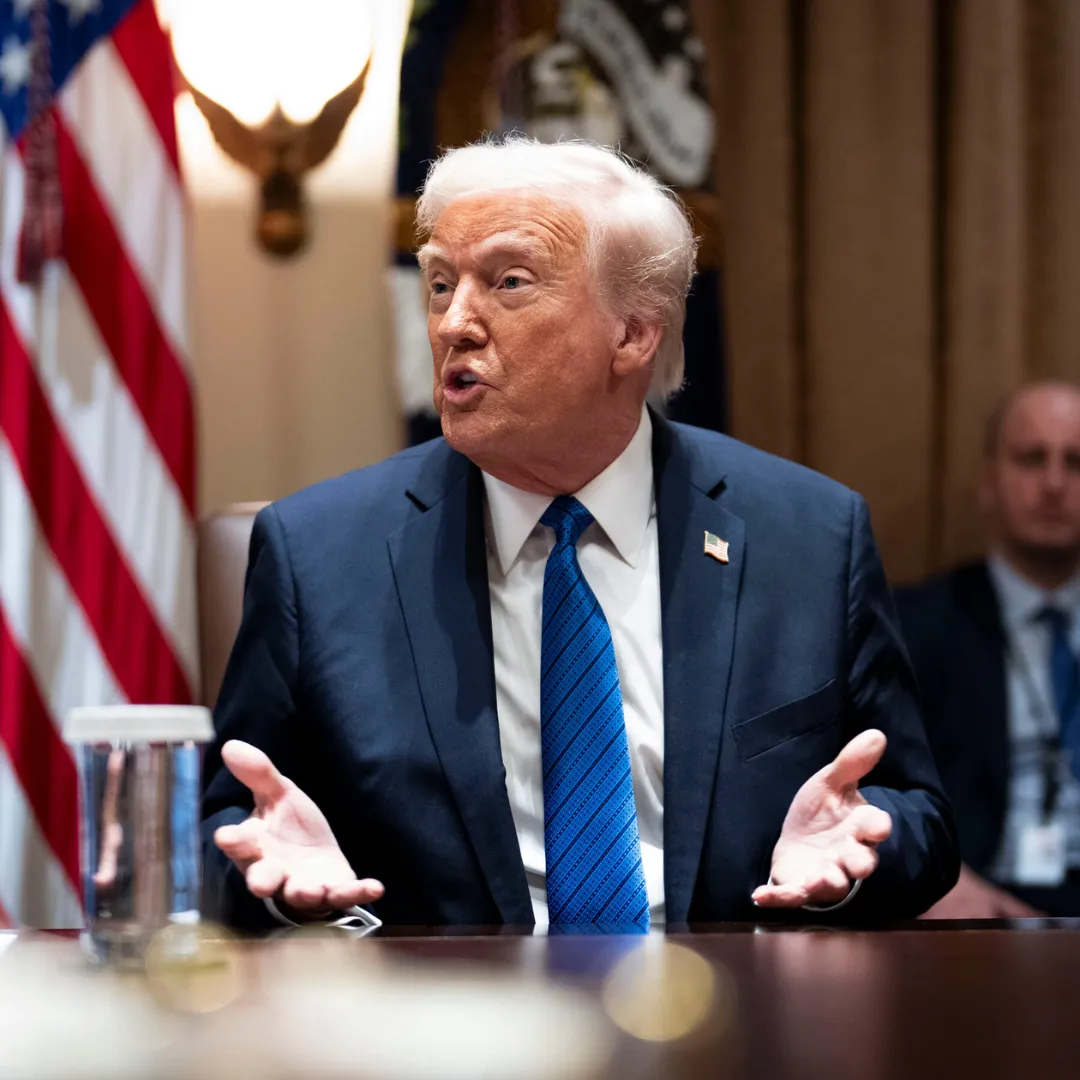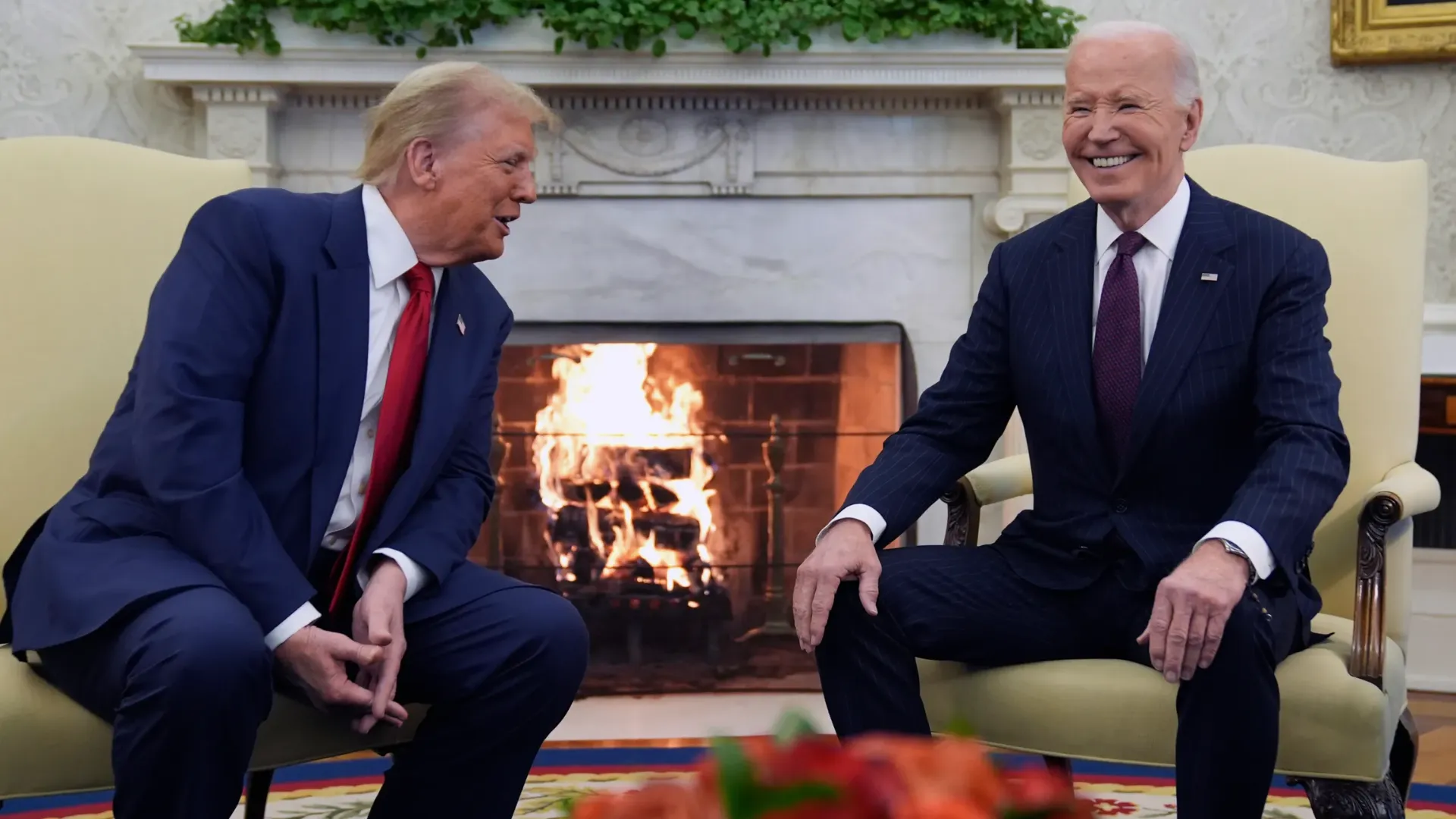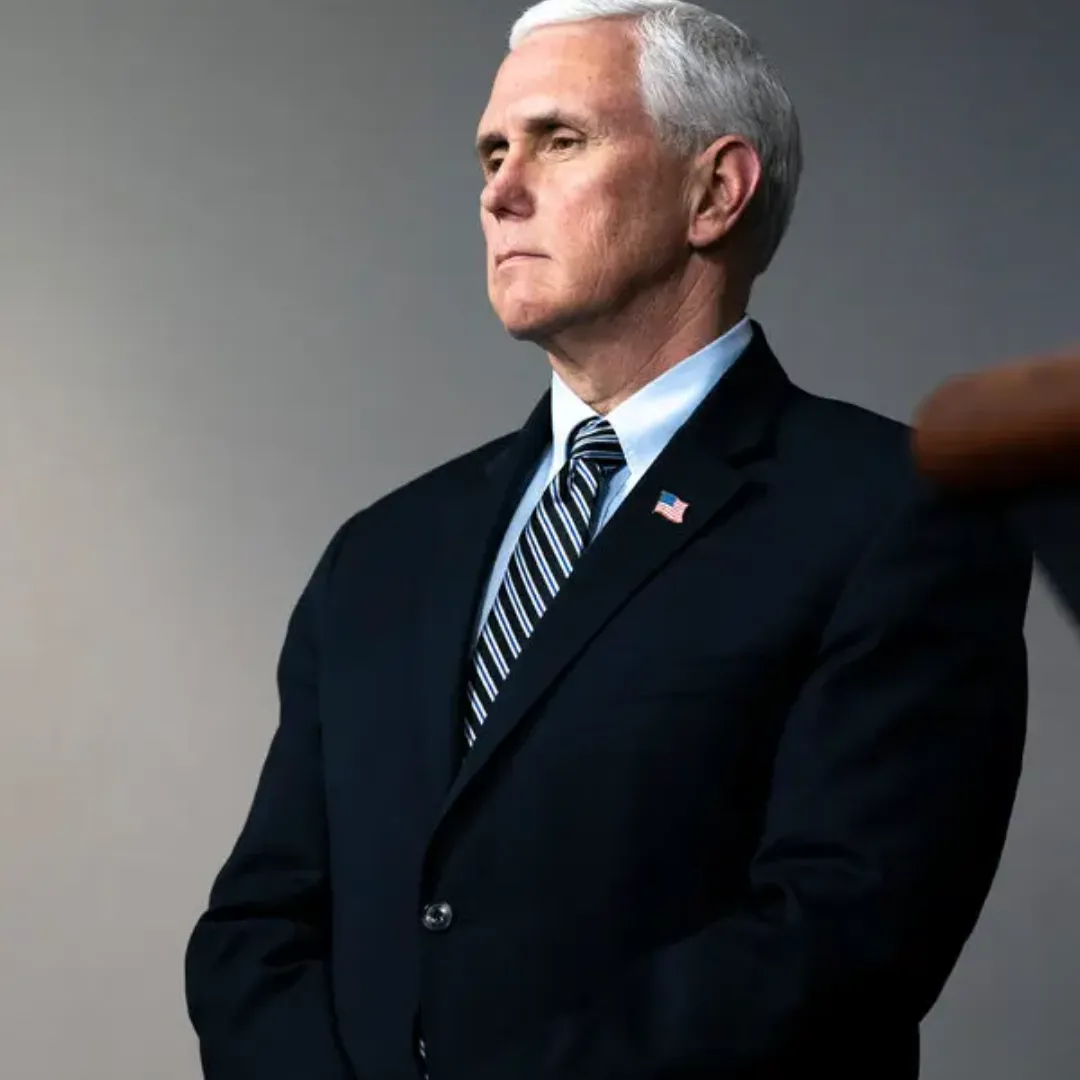
In a move that has stirred strong reactions across the political spectrum, Homeland Security Secretary Kristi Noem, during a televised Cabinet meeting on Monday, proposed the elimination of the Federal Emergency Management Agency (FEMA). While delivering an update on border security, Noem mentioned the agency's fate in passing, simply stating, “And we’re going to eliminate FEMA.”
No further details were provided by Noem at the time, leaving many to wonder what her proposal actually entails and how it could affect national disaster response efforts.
President Donald Trump, appearing to respond to her broader status update on border security, praised Noem, saying, “That’s great. Great job.” His positive response, however, has raised questions regarding his stance on FEMA, an agency he has criticized in the past.
Trump has been outspoken about FEMA, suggesting previously that he would consider cutting it or even dismantling the agency altogether.
FEMA has long played a critical role in the United States’ ability to respond to and recover from natural disasters. From hurricanes and floods to wildfires and earthquakes, the agency has been on the front lines, coordinating both immediate disaster response and long-term recovery efforts.
Yet, this proposal from Noem, combined with Trump’s history of skepticism about FEMA, casts doubt on the future of this crucial agency.
Noem’s comment is not entirely unexpected, given President Trump’s history of disparaging FEMA. In January, Trump himself suggested that he would consider getting rid of the agency, saying, “I’ll also be signing an executive order to begin the process of fundamentally reforming and overhauling FEMA, or maybe getting rid of FEMA. I think, frankly, FEMA’s not good.”
However, despite such strong rhetoric, a recent executive order issued by the White House did not call for the outright elimination of FEMA, but instead directed the Department of Homeland Security to review the disaster response policies and propose changes.
The order stated that the Homeland Security Secretary should ensure “state and local governments and individuals have improved communications with federal officials and a better understanding of the federal role” in disaster response efforts.
While the executive order suggests that the administration is looking for improvements in the system, it stops short of endorsing the outright dismantling of FEMA, which some within the administration have hinted at in the past. Still, Noem’s comments on Monday signal a continuation of the Trump administration’s longstanding skepticism about FEMA’s effectiveness and the desire for a reorganization of disaster response efforts.

FEMA, established in 1979 by President Jimmy Carter, is tasked with coordinating the federal government’s response to natural disasters and providing aid to state and local governments. Its primary mission is to ensure that people in affected areas receive the assistance they need to recover from disasters—be it financial aid, shelter, food, or medical assistance.
The agency also provides support for long-term recovery efforts, helping communities rebuild after the immediate crisis has passed.
The elimination of FEMA would leave a significant gap in the nation’s disaster management infrastructure. For many Americans, FEMA is often the first point of contact when a disaster strikes, providing them with essential resources and assistance in the critical moments following a calamity.
Without this agency, it is unclear how the federal government would respond to natural disasters, and many are concerned that local and state governments would be left to shoulder the burden without adequate federal support.
Critics of Noem’s proposal are quick to point out that eliminating FEMA would be detrimental to disaster response efforts across the country. “FEMA coordinates disaster response in the immediate aftermath of storms and also helps with longer-term recovery,” noted a number of experts.
The agency’s ability to mobilize resources quickly and efficiently is a key component of the nation’s disaster response infrastructure, and its removal could leave the country vulnerable in the face of future natural disasters.
Democrats have quickly criticized Noem’s suggestion, calling it a reckless and dangerous proposal that would abandon communities in their time of greatest need. Senator Peter Welch (D-Vt.) issued a statement condemning Noem’s comments, calling the idea of eliminating FEMA “a complete non-starter.”
“The Trump Administration’s grand plan for victims of natural disasters is to abandon them,” Welch said. “This rash decision will harm ongoing disaster recovery efforts, and make it impossible to respond after the next natural disaster.” The Vermont senator emphasized that FEMA’s role in providing immediate relief and coordinating recovery efforts is essential for communities affected by disasters, and eliminating it would only worsen the situation.
Welch’s comments reflect the broader concern among Democrats and many disaster management experts that dismantling FEMA would leave vulnerable communities without the support they need in the wake of major crises. For decades, FEMA has been a lifeline for those impacted by hurricanes, wildfires, and other natural disasters.

Removing that support would, according to critics, put countless lives at risk and exacerbate the already challenging process of rebuilding after a disaster.
In addition to the logistical challenges posed by the elimination of FEMA, there are also concerns about the broader message it sends. Critics argue that the administration’s ongoing critique of FEMA undermines the public’s confidence in the federal government’s ability to respond effectively to emergencies.
With climate change contributing to an increase in the frequency and severity of natural disasters, the need for a well-equipped, coordinated federal disaster response agency is more urgent than ever.
Noem’s comments about FEMA are part of a broader pattern in which the Trump administration has expressed a desire to overhaul or dismantle various federal agencies. Over the years, Trump has repeatedly criticized government agencies for inefficiency, waste, and excessive regulation, while advocating for a smaller federal government.
His criticism of FEMA fits into this narrative of wanting to reduce the size and scope of the federal bureaucracy, though it remains unclear what alternatives the administration might propose in place of the agency.
Trump’s stance on federal agencies is often rooted in his broader political philosophy of limited government. He has often emphasized the need to reduce the influence of government in the lives of American citizens, arguing that a smaller government would lead to greater individual freedom and economic growth.
However, critics of this philosophy contend that it overlooks the vital role that federal agencies like FEMA play in ensuring the safety and well-being of Americans, particularly in times of crisis.
The administration’s focus on reducing the size of government and eliminating agencies it deems unnecessary has drawn significant criticism from Democrats and others who argue that these agencies are essential to the functioning of society. FEMA, in particular, has been a key player in disaster relief efforts for decades, and its elimination would represent a significant shift in how the federal government addresses natural disasters and emergencies.
As the Trump administration continues to push for changes to FEMA and other federal agencies, it remains unclear what the future holds for disaster management in the United States. While Noem’s comment about eliminating FEMA has generated significant debate, it is important to remember that no formal proposal has yet been put forward.
The executive order issued by the White House earlier this year focused on reviewing and reforming disaster response policies, not on eliminating FEMA outright.
That being said, the conversation surrounding FEMA and the federal government’s role in disaster management is unlikely to subside anytime soon. With the 2024 presidential election looming, the debate over FEMA’s future could become a key issue in the campaign, particularly as the country continues to grapple with the effects of climate change and the increasing frequency of natural disasters.
For now, FEMA’s fate remains uncertain, and much depends on the direction the Trump administration chooses to take. Will FEMA be reformed, or will it be dismantled altogether? The answer to that question will have significant implications for the nation’s ability to respond to future disasters and provide essential assistance to those in need.

The idea of eliminating FEMA raises serious concerns about the future of disaster response in the United States. While President Trump and Homeland Security Secretary Kristi Noem may argue that FEMA is inefficient or unnecessary, many experts and lawmakers believe that dismantling the agency would be a grave mistake.
FEMA’s role in coordinating disaster relief efforts and assisting with long-term recovery is essential to the safety and well-being of Americans, particularly in the face of increasing natural disasters.
As the country faces a growing number of environmental crises, the need for a robust, coordinated federal response has never been more apparent. Eliminating FEMA would leave millions of Americans vulnerable during times of crisis and send the dangerous message that the federal government is unwilling to provide the support necessary to rebuild after disasters.



